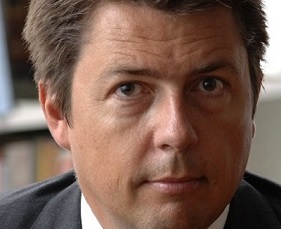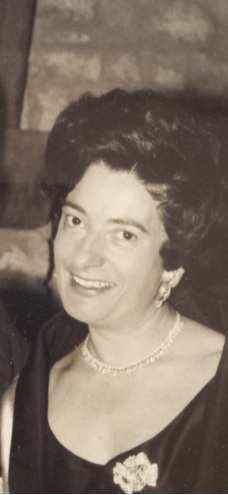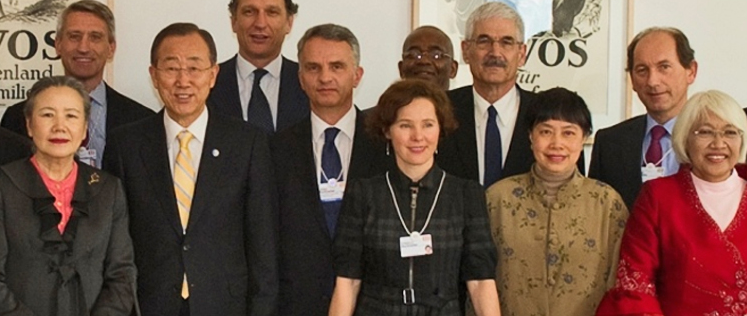Uncategorized
Insights from 10 years of engagement
The continuous exchange with high-profile representatives of leading companies from different industries across the globe provided us with invaluable insights at different levels: first of all, it was an effective means for keeping up to date with overall trends in corporate sustainability. Secondly, we were able to recognize and understand distinctive patterns in different industries and geographical or cultural areas. Thirdly, the dialogues enabled us to gain an in-depth understanding of the rationale behind a company’s sustainability reporting.
For example the reluctance to publish objectives hampered the reporting of clear, measurable achievements. How, for example, can a reader know whether a certain decrease in CO2 emissions is a real achievement if the company has not published any clear statement about their ambitions previously? Even more disputed was the question of whether a company also publishes its non-achievements. In our view, a company which admits that it has failed to achieve goals it had set for itself, comes across as being sincere. What is more, the failure to achieve a goal also suggests that a company has been setting ambitious goals for itself. By contrast, companies which permanently achieve all of their targets, sometimes far ahead of time, beg the question of whether they only focus on ‘low hanging fruits’. However, as some company representatives admitted, the question of whether they should admit ‘failure’ was an ongoing point of contention among representatives from different departments, and in some cases it touched on the very foundation of their overall corporate culture.
While there has been a proliferation of sustainability ratings over the past years, it is safe to say that the GuiléReportingAssessmentTM and the work of the Guilé Engagement Team stand out in terms of the thorough way in which a company’s information is screened and discussed. → View full report
Christopher Quast
Christopher Quast, former senior consultant with McKinsey, has been active in the European equities markets for more than ten years as partner with de Pury Pictet Turrettini & Co Ltd.
Mr. Quast is the Managing Director of the Guilé European Engagement Fund.
GuiguiBurrus
His wife Marguerite, nicknamed Guigui, a eu 4 fils dont Charles Burrus, l’ainé a repris la direction des affaires.
Pianiste virtuose et cavalière émérite, elle a participé à de nombreuses œuvres caritatives locales comme la formation de la jeunesse locale. Une de ses contributions les plus remarquées a été sa participation lors la deuxième guerre mondiale a sauvé environ 5000 enfants juifs. Elle a organisé avec Mme Odile Burrus, nommée Chevalier de la Légion d’honneur en 1948, leur passage sur la frontière suisse via la Porte de France de la propriété familiale du Domaine de Guilé donnant sur la France. C’est ce Domaine qui héberge la Fondation Guilé depuis sa création. Avec l’aide de la Croix-Rouge, ses enfants ont été soignés, vêtus et envoyé dans des lieux d’accueil en Suisse.
1814
The history of the Fondation Guilé goes back to the year 1814, when Martin Burrus started a tobacco enterprise that would remain in the family for almost 200 years.
In 1931, his predecessor Léon and his wife Marguerite Burrus built a country manor to give a home to the spirit, values, and legacy of the family. They named the manor GUILÉ, according to a combination of their first names. The Domaine de Guilé became the place where the Burrus family hosted their large social network including relatives, friends, industrialists, politicians, philanthropists, military officials and academics.
The tobacco enterprise F.J. Burrus became one of the pioneers of corporate responsibility in Switzerland. It was, for example, the first company in Switzerland to provide corporate pension schemes.
After the family enterprise was sold in 1996, Charles and Nado Burrus decided to make their private home Domaine de Guilé the residence of a foundation that would help private businesses act ethically. They undertook major renovations and transformed the building and surrounding. The site was equipped with the most modern technologies so as to serve as a venue for meetings and seminars. But thanks to the elegant and sober decoration chosen by Nado, the manor conserved its original patina, style, and charm.
1931
The history of the Fondation Guilé goes back to the year 1814, when Martin Burrus started a tobacco enterprise that would remain in the family for almost 200 years.
After the family enterprise was sold in 1996, Charles and Nado Burrus decided to make their private home Domaine de Guilé the residence of a foundation that would help private businesses act ethically. They undertook major renovations and transformed the building and surrounding.
The tobacco enterprise F.J. Burrus became one of the pioneers of corporate responsibility in Switzerland. It was, for example, the first company in Switzerland to provide corporate pension schemes.
After the family enterprise was sold in 1996, Charles and Nado Burrus decided to make their private home Domaine de Guilé the residence of a foundation that would help private businesses act ethically. They undertook major renovations and transformed the building and surrounding. The site was equipped with the most modern technologies so as to serve as a venue for meetings and seminars. But thanks to the elegant and sober decoration chosen by Nado, the manor conserved its original patina, style, and charm.
UN Global Compact Lead Luncheon
The LEAD Luncheon took place only five months prior to the UN Conference on Sustainable Development in Rio in June 2011 (Rio+20). It represented an important opportunity for chief executives to engage in open and interactive discussions with UN leadership on the future of corporate sustainability and expectations to the Rio+20 process. The objectives were:
- To review the first year of Global Compact LEAD and discuss the future priorities of the initiative
- To identify priorities for the Rio+20 process and exchange views on the role and involvement of the private sector.
part 1 : Review of Global Compact Progress and Priorities
The history of the Fondation Guilé goes back to the year 1814, when Martin Burrus started a tobacco enterprise that would remain in the family for almost 200 years.
In the first part of the discussion, participants were invited to review the first year of Global C ompact LEAD and discuss the future priorities of the initiative. While executives were welcomed to focus on any aspect of corporate sustainability leadership and voice any type of comment regarding the future of Global Compact LEAD, the moderator made sure that the following themes were covered by the discussion:
- Board Oversight of Sustainability
- Collaboration with UN
- Collaboration with Investors
- Global Compact Local Networks
- Additional background information
part 2 : preparing for rio+20
The United Nations Secretary-General Ban Ki-moon kicked this part of the discussion off by outlining his ambitions for Rio+20 and by challenging companies to rise to the occasion and support the United Nations in making the In response to the Secretary-Generals opening address, the discussion among participants allowed UN and business leadership to exchange views on the priorities for the Rio+20 process, focusing specifically on the role and involvement of the private sector.
Participating executives contributed to the discussion by conveying their expectations to the Rio+20 process and by suggesting how corporate sustainability leaders, including their own organizations, can best contribute to a successful outcome. This included suggestions on the role that leading companies can play in calling on governments to put the right incentives and enabling environment in place.
UN Global Compact
UN Global Compact UN Global Compact UN Global Compact UN Global Compact
GuiléAssessmentTM
GuiléAssessmentTM GuiléAssessmentTMGuiléAssessmentTMGuiléAssessmentTM GuiléAssessmentTMGuiléAssessmentTMGuiléAssessmentTMGuiléAssessmentTMGuiléAssessmentTM







